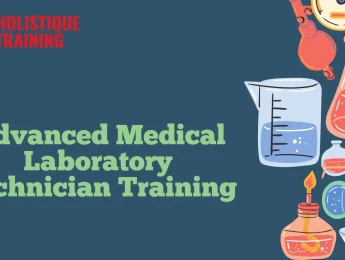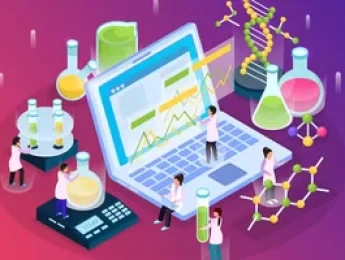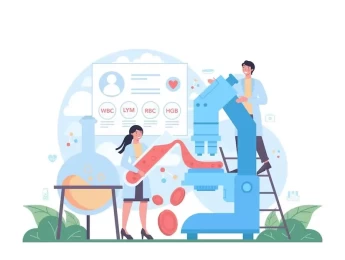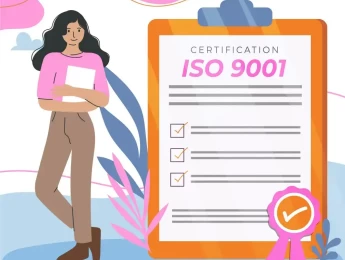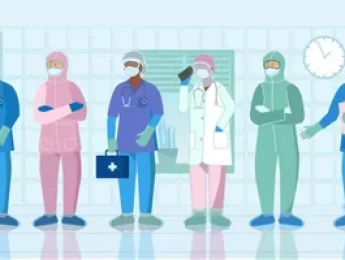The medical industry is vital to all aspects of society, ensuring people can remain fit and healthy as they go about their lives. A wide variety of services within a medical organisation contribute to its success, one of which is the medical or clinical laboratory.
To work effectively in a medical laboratory, one must have a thorough understanding of laboratory policies and health and safety procedures. Labs contain potentially harmful substances and biomaterials that need to be handled and stored according to particular methods to ensure the safety of those within the lab and the integrity of the specimens.
Those within a laboratory should also have a high level of competency regarding the instruments and equipment used and how to keep the environment sterile. Each instrument has a unique purpose and handling method, and any individual within the lab should be able to explain and demonstrate these. Furthermore, all instruments need to be efficiently sterilised to reduce the risk of spreading disease and compromising any specimens or samples.
Upon completion of this course, participants will be able to:
- Understand the importance of medical laboratory technicians in a medical organisation.
- Explore the roles and responsibilities of a medical lab technician.
- Identify what services are conducted within a clinical lab.
- Recognise and comply with all laboratory safety rules, policies, and procedures.
- Demonstrate the correct methods of handling and utilising various tools and instruments within the lab.
- Comprehend the methods of sterilising and cleaning equipment and surfaces efficiently.
- Explain how various instruments and equipment within the lab are used and how to use them as safely as possible.
This course is designed for anyone with baseline scientific knowledge who wishes to navigate into a medical career. It would be most beneficial for:
- Medical Laboratory Technicians
- Clinical Laboratory Scientists
- Research Scientists
- Glassware Washers
- Risk Analysts
- Risk Managers
- HSE Officers
This course uses a variety of adult learning styles to aid full understanding and comprehension. Participants will handle a collection of basic laboratory instruments to highlight what they are and how they are used within the laboratory.
They will engage in a variety of learning exercises, including presentations, group discussions, video material and group activities. This assortment of learning methods will ensure the participants can develop a thorough understanding of the taught content and all related practical skills
Day 5 of each course is reserved for a Q&A session, which may occur off-site. For 10-day courses, this also applies to day 10
Section 1: Introduction to the Laboratory
- Describe what a laboratory is and what its role is within the medical industry.
- Identify who commonly works within a laboratory and what their roles and responsibilities are.
- The classification and structure of medical laboratory services.
- Appreciating the history of medical labs and their vitality within modern medicine.
- Aligning personal behaviour with the professional code of conduct and ethics.
Section 2: Laboratory Policies
- Describing the necessity of policies and procedures within a laboratory environment.
- Establishing laboratory hours and circumstances of emergency work.
- Investigating services and tests that can be performed by certain individuals and referring others to a higher level.
- Collection and storage of specimens and samples.
- Determinng a reasonable capacity of workload.
Section 3: Health and Safety
- Conducting risk and hazard assessments to identify all probable risks within the environment.
- Implementing a risk management plan to minimise risks and incorporate preventative measures.
- Ensuring all health and safety procedures and aligned with national health and safety laws and regulations.
- Guaranteeing high levels of competency surrounding the use and storage of biomaterials and potentially harmful chemicals.
Section 4: Instruments and Equipment
- Analysing what materials are commonly used within the laboratory and their purposes.
- The classification of equipment, including flasks, beakers, and pipettes.
- Understanding the concepts of Beer-lambert’s Law.
- Safe handling techniques for all types of equipment.
- Utilising certain instruments to conduct common but necessary tasks – purifying water and pH determination.
Section 5: Sterilisation and Disinfection
- The vitality of correctly sterilising instruments, equipment, and the environment.
- Different methods of sterilisation and how they work effectively – dry heat, moist heat, and steam under pressure.
- Types of autoclaves and their advantages and disadvantages.
- Disinfection, decontamination, and disposal of laboratory wastes.
- Decontamination of laboratory environment.
Upon successful completion of this training course, delegates will be awarded a Holistique Training Certificate of Completion. For those who attend and complete the online training course, a Holistique Training e-Certificate will be provided.
Holistique Training Certificates are accredited by the British Assessment Council (BAC) and The CPD Certification Service (CPD), and are certified under ISO 9001, ISO 21001, and ISO 29993 standards.
CPD credits for this course are granted by our Certificates and will be reflected on the Holistique Training Certificate of Completion. In accordance with the standards of The CPD Certification Service, one CPD credit is awarded per hour of course attendance. A maximum of 50 CPD credits can be claimed for any single course we currently offer.
- Course Code IND05-107
- Course Format Classroom, Online,
- Duration 5 days




